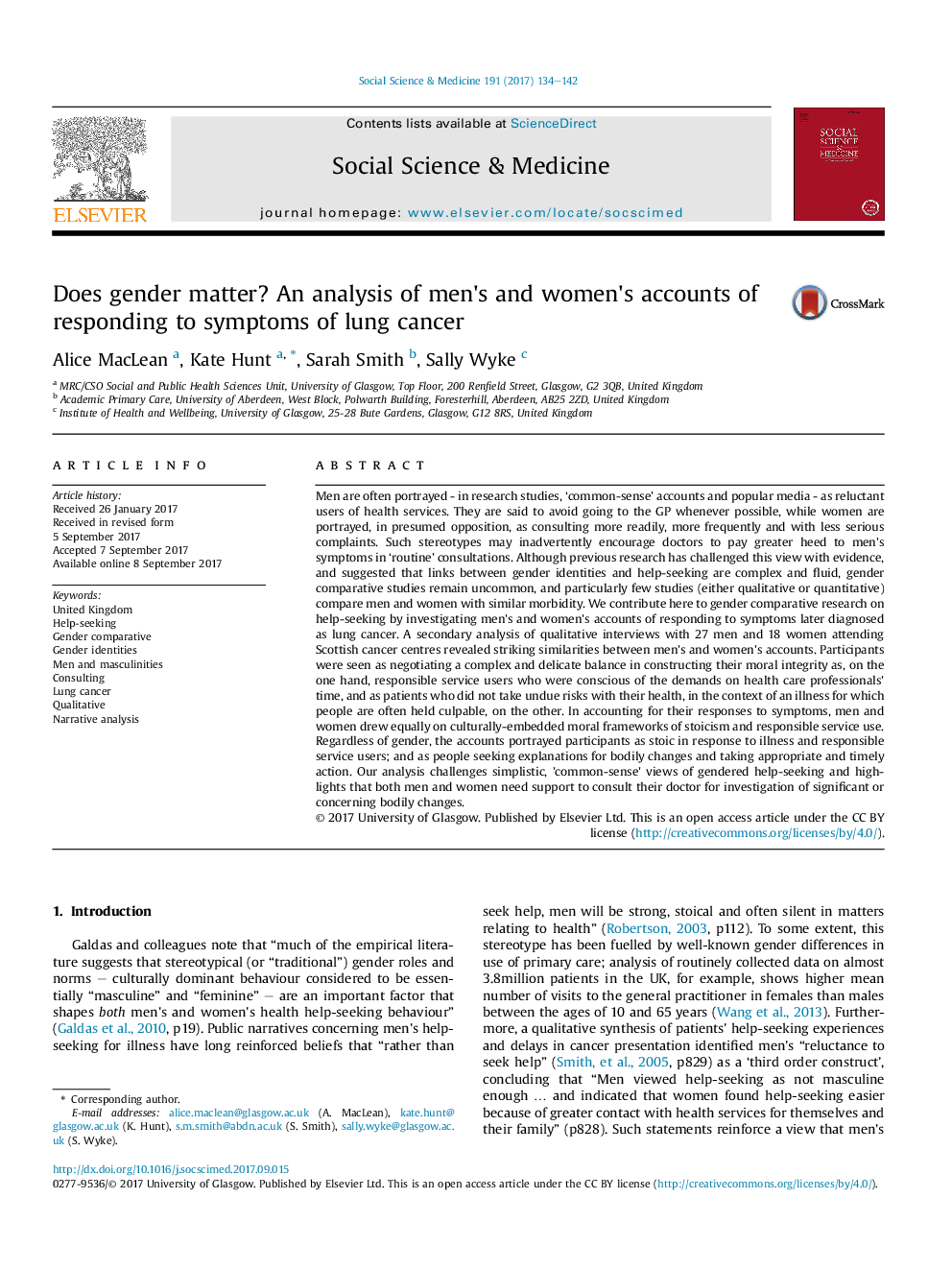| کد مقاله | کد نشریه | سال انتشار | مقاله انگلیسی | نسخه تمام متن |
|---|---|---|---|---|
| 5046297 | 1475978 | 2017 | 9 صفحه PDF | دانلود رایگان |
- Assumptions that help-seeking differs by gender abound and are rarely challenged.
- We undertook a gender comparative analysis of responses to lung cancer symptoms.
- Men's and women's accounts of responses to symptoms were strikingly similar.
- Culturally-embedded moral frameworks suffused accounts, regardless of gender.
- Accounts balance stoic and responsible service use vs appropriate and timely action.
Men are often portrayed - in research studies, 'common-sense' accounts and popular media - as reluctant users of health services. They are said to avoid going to the GP whenever possible, while women are portrayed, in presumed opposition, as consulting more readily, more frequently and with less serious complaints. Such stereotypes may inadvertently encourage doctors to pay greater heed to men's symptoms in 'routine' consultations. Although previous research has challenged this view with evidence, and suggested that links between gender identities and help-seeking are complex and fluid, gender comparative studies remain uncommon, and particularly few studies (either qualitative or quantitative) compare men and women with similar morbidity. We contribute here to gender comparative research on help-seeking by investigating men's and women's accounts of responding to symptoms later diagnosed as lung cancer. A secondary analysis of qualitative interviews with 27 men and 18 women attending Scottish cancer centres revealed striking similarities between men's and women's accounts. Participants were seen as negotiating a complex and delicate balance in constructing their moral integrity as, on the one hand, responsible service users who were conscious of the demands on health care professionals' time, and as patients who did not take undue risks with their health, in the context of an illness for which people are often held culpable, on the other. In accounting for their responses to symptoms, men and women drew equally on culturally-embedded moral frameworks of stoicism and responsible service use. Regardless of gender, the accounts portrayed participants as stoic in response to illness and responsible service users; and as people seeking explanations for bodily changes and taking appropriate and timely action. Our analysis challenges simplistic, 'common-sense' views of gendered help-seeking and highlights that both men and women need support to consult their doctor for investigation of significant or concerning bodily changes.
Journal: Social Science & Medicine - Volume 191, October 2017, Pages 134-142
